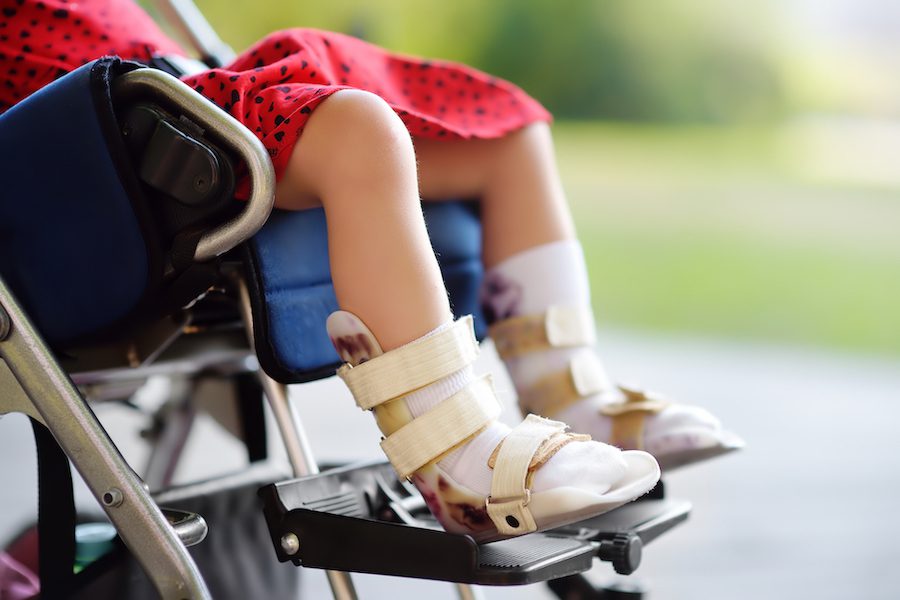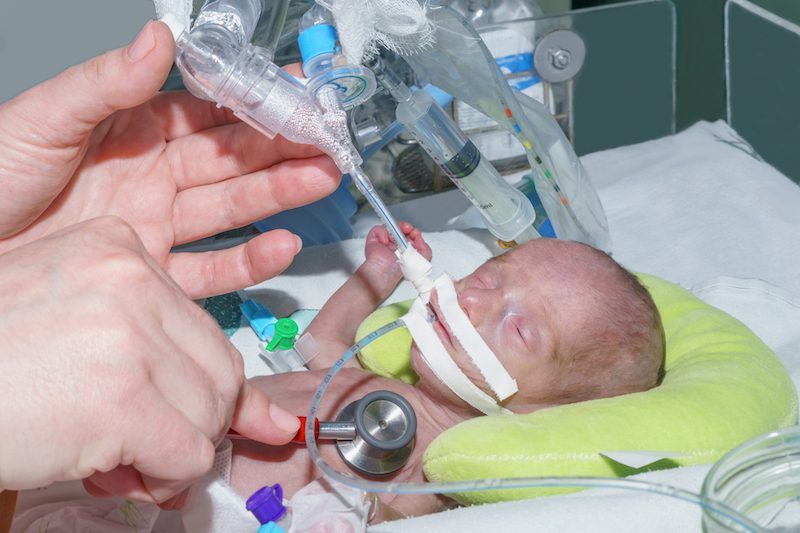
Exceptional Care for Diverse Populations

Abstract
HealthySteps (HS) is an evidence-based integrated model designed to provide enhanced primary care services to young children and families. This article describes the strategies HS specialists use, adapt, and innovate while maintaining fidelity to the model to meet the unique needs of diverse settings, circumstances, and communities. The authors illustrate various strategies used to support adolescent parents, children with medical complexity, children in foster care, families with unstable housing, children being parented by grandparents, and children in rural communities. In each case, exceptional care is provided to meet families’ unique needs. The authors include recommendations for practice.
Young children and their families present in primary care clinics earlier and more often than any other professional setting. Integrating prevention and health promotion strategies into these systems, especially for families most in need, is a critical strategy for ensuring that young children receive the highest quality care available. HealthySteps (HS), a program of ZERO TO THREE, is an evidence-based, integrated model designed to enhance primary care services for young children from birth through 3 years old and their families. The model consists of eight core components that define a service delivery strategy to comprehensively care for all young children and their families within a primary care clinic. When HS is implemented with full fidelity, both children and their caregivers experience positive outcomes (HealthySteps National Office, 2023).
Clinics implementing this evidence-based model serve a diverse group of patients and families, some of whom have unique characteristics or circumstances, such as children being cared for by grandparents or living with families without stable housing. There are also clinics that exclusively serve specific populations such as children with medical complexity or children in the foster care system. Finally, there are clinics across the country implementing this model in rural communities where unique considerations and opportunities for innovation exist.
Early childhood integrated behavioral health (ECIBH) strategies, such as HS, are especially important and impactful in each of these contexts. There are ample opportunities for creative implementation of evidence-based models that meet the unique needs of these diverse populations while adhering to model fidelity. The following examples highlight a handful of clinics and circumstances where HS and ECIBH have been implemented creatively and play an important role in providing comprehensive care to young children most in need. When case vignettes are discussed, identifying details have been changed to protect patient confidentiality.
Diverse Clinics
Integrated behavioral health and HS are uniquely suited to provide enhanced care to children and families with unique circumstances and needs. The following examples describe clinics designed to provide care to specific populations and demonstrate the opportunities to adapt well-child care and evidence-based models to meet families’ needs in these settings.

Clinic for Adolescent Parents
The Young Mother’s Clinic (YMC) is a dyadic medical home for adolescent mothers (up to 25 years old) and their children. YMC serves a racially and ethnically diverse patient population, with over 95% of patients publicly insured. HS is implemented in the YMC with specific modifications to best support this population. Specifically, all patients are universally enrolled in Tier 3 services and, as rates of trauma are higher in the parenting adolescent population, trauma-informed principles are embedded into clinic practice. There is significant emphasis on establishing relationships and maintaining consistency with providers and, in addition, the HS specialists make intentional efforts to support relationships between patients and the clinic itself. Given the social and environmental context of many YMC parents including age, educational attainment, socioeconomic status, and race and ethnicity, HS specialists spend significant time in visits assessing psychosocial factors impacting the caregiving environment. Interventions and recommendations are given with these considerations in mind, and HS specialists engage all involved caregivers (e.g., grandparents, great-aunts, aunts, foster parents), which often means working with different caregivers at every visit. To highlight modifications made to the HS program in YMC, we describe the HS specialist’s work with Keon.
Keon is a 12-month-old African American boy who has been a patient at YMC since birth. He was enrolled in the HS program as part of the clinic’s universal enrollment at his 2-week well child visit (WCV). His mother, Lucy, is 16 years old and has a history of significant depression and anxiety. Lucy and Keon attended his newborn, 1-month, and 2-month WCVs; the HS specialist focused on building a relationship with the family and assessing for and providing psychoeducation about mood changes in the postpartum period given Lucy’s mental health history. The family did not attend the next three subsequent WCVs; the HS specialist reached out to the family several times but wasn’t able to get in contact with them.
Keon attended his 12-month WCV with his older brother, Darion, and their paternal grandmother, Sandra. The YMC medical provider and HS specialist met with the family together, given concerns about both baby and mom. Sandra explained that Lucy was currently in a foster home that was not licensed to also be a home for the baby. Thus, Keon and Darion were temporarily in the care of paternal grandparents while DHS looked for a foster home where Lucy and her two children can all live together. The medical provider informed Sandra that YMC will continue to care for Lucy, Keon, and Darion despite these changes. The HS program and the role of HS specialist was explained, and Sandra expressed relief to be offered these supports.
Sandra reported that she is concerned about Darion’s hyperactivity and difficulty with limit setting. The HS specialist validated Sandra’s concerns and overwhelm in taking care of the boys. Interventions and recommendations were focused on ways for Sandra to support language development, respond to tantrums, and foster secure attachment. The HS specialist also provided education and anticipatory guidance on behavior changes in young children following an attachment disruption. The HS specialist praised Sandra for her patience and efforts to set consistent limits with both children. The HS specialist will continue to follow up with the family to monitor developmental progress and to provide caregiver support. The HS specialist will also continue outreach efforts to Lucy to engage her in preventative care, maintain a trusting relationship, and support her during this separation from her children.
Clinic for Children with Medical Complexity
Children with medical complexity (CMC) are those with complex chronic medical conditions that significantly impact functioning in at least one major life domain and require a higher level of service use than other children (Cohn et al., 2020). CMC may also use medical technology to support functioning in various domains, such as feeding, breathing, moving, or communicating. Examples of diagnoses that CMC may have include extreme prematurity, congenital heart disease, genetic disorders, neurological disorders, or cerebral palsy. Some CMC may have the opportunity to attend a complex primary care clinic that specializes in care for CMC, however, given the small number of these special primary care clinics in the United States, CMC are more likely to receive primary care in a typical pediatric clinic or family medicine clinic. Thus, HS specialists in any primary care setting can benefit from knowing considerations for adapting HS services for CMC and their families.
The Special Care Clinic (SCC) is located within a children’s hospital in a large academic medical center in an urban community. The clinic provides primary care to CMC and is one of the largest primary care clinics of its type in the country. HS was integrated into the SCC in 2019 and since that time the clinic has implemented and adapted the model to comprehensively serve young CMC and their families. Clinic staff have identified several strategies essential for successful implementation in a clinic that serves CMC.
When considering how to adapt developmental and behavioral guidance for young CMC, HS specialists first gather an estimate of developmental level broadly and across different domains. For premature infants, calculating corrected age is a good first step to estimate development, and HS material for corrected age is provided, rather than materials for typical developmental age. However, given the long-term developmental impacts of extreme prematurity and the risk for lasting neurological impairment, for some premature infants, their adjusted age is too advanced of an estimate. Thus, for CMC, HS specialists in the SCC inquire into new or progressing developmental skills, the goals of the child’s developmental therapies (e.g., speech, occupational), and wonder with caregivers about any concerns they may have about their child not demonstrating certain developmental milestones. CMC may have scattered developmental levels, and it can be difficult to quickly identify their abilities. Being cognizant of the range of developmental levels and current developmental therapies allows the HS specialist to provide recommendations specific to the child’s unique developmental profile and may differ from and add to the recommendations other professionals are providing. For example, if a caregiver reports that a patient receives nutrition only via a gastronomy tube, or that an infant has a cleft lip and palate that impedes their ability to form suction, the HS specialist discusses the topic of feeding routines and promoting attachment during feeding in a medically and developmentally appropriate manner that is sensitive to the fact that feeding time differs from how the caregiver first imagined.
Parents and caregivers are vital to the health and well-being of CMC, often performing medical care that’s on a level usually provided by a certified nursing assistant and experiencing increased rates of posttraumatic stress disorder and other mental health symptoms compared to caregivers of medically healthy children (Corsi et al., 2021). Thus, when evaluating caregiver well-being, HS specialists consider the potential impacts of medical trauma, the current stage of adjustment to parenting a CMC, how family life has changed due to caring for the needs of a CMC, and potential social isolation or limitations of available psychosocial supports. Universal screening for postpartum depression may not capture trauma responses, anxiety due to their child’s medical fragility, or stress with managing significant life changes related to their child. Thus, the HS specialists expanded their repertoire of informal caregiver well-being screening questions to consider these factors.
Given the range of complex medical diagnoses, HS specialists often encounter unfamiliar diagnoses. Consultation and collaboration with the medical provider are important, to learn not only about the diagnosis, but also how it presents in the particular patient. This collaboration helps the HS specialist learn the potential implications of a diagnosis on a patient’s developmental trajectory, behavior, functioning, and prognosis. Other potential sources of information for case conceptualization and recommendations include the medical record, caregivers, allied health professionals, or reputable diagnosis-specific or general pediatric complex care websites.

Clinic for Children in Foster Care
Almost a third of abuse victims are under 3 years old, with those under 1 year having the highest rates of victimization (Children’s Bureau, 2023). Up to 68% of preschoolers involved with child welfare have developmental delays and behavioral concerns (Johnson-Motoyama et al., 2016). Youth of color are disproportionately overrepresented and more likely to experience negative outcomes when compared to White youth involved in child welfare (National Conference of State Legislatures, 2021). Positive early life experiences with caregivers and health professionals can offset the negative effects of abuse or neglect (Garner et al., 2021). These children are in a position to benefit from enhanced support and services in nonstigmatized settings such as primary care.
The Kids in Care Settings (KICS) Clinic is a medical home serving children and families involved in out-of-home placement (foster or kinship care). Given the unique needs of this population, there are several ways in which the clinic modifies integrated services in primary care to best serve these young children and families. Some important adaptations include:
- all involved staff (including schedulers, medical assistants, and providers) participate in regular trauma-informed care trainings led by the psychologist on the team,
- longer appointment times (40 minutes or 1 hour for all visits except same-day sick appointments),
- pre-visit outreach by the clinic social worker to the foster/kinship family to conduct a brief intake and obtain all required consents prior to the clinic visit,
- pre-visit outreach to the biological family (when legally allowed) to inform them of and invite them to the clinic visit,
- caregiver behavioral health and resource need screeners given to both kinship/foster and biological families when applicable,
- partnership with dentistry to have same-day dentistry appointments following KICS clinic appointments when needed,
- extra care taken with confidentiality of notes given possible sensitivity and safety concerns between foster/kinship and biological families, and
- automatic referrals to Early Intervention/Part C services for all children from birth to 3 years old given their automatic eligibility for services with child welfare involvement.

The following case illustrates the enhanced services provided to children in the KICS clinic. Deanna came to clinic with a 12-month-old (John) and a 30-month-old (Maya) pair of siblings who had been removed from their mother’s care due to substance use concerns and placed in Deanna’s care 2 days prior. This was Deanna’s first placement, and she was still getting to know these children. KICS clinic attempted to contact John and Maya’s biological mother three times prior to the appointment to let her know about her children’s care and invite her to the visit, but the clinic social worker was unable to reach her. The 1-hour appointment times in the KICS Clinic allowed Deanna to share what she had observed with the children behaviorally and developmentally, discuss caregiver screening results that reflected her own anxiety and stress related to this new and sudden placement, and allowed time for “in the moment” intervention with a trauma-informed lens. For example, Maya immediately wanted to hold hands with providers and asked them to walk around clinic with her. This behavior was bewildering and stressful to Deanna, and it was helpful to contextualize this behavior within Maya’s known history of abuse and neglect, including disrupted core relationships. Further, John was waking up every hour wanting a bottle of milk at night. After discussing this behavior within John’s history of trauma and inconsistently getting his needs met, Deanna began to understand this behavior as attachmentbased and a likely request for attention and care as opposed to a hunger cue that she needed to respond to with milk every time. Lastly, Deanna was given space to reflect on her identity as a White woman caring for Black-Latino children. Concretely, a resource on caring for Black hair was especially meaningful for Deanna as she thought ahead to best caring for these children and finding meaningful moments of connection with them in the days and weeks to come.
Diverse Circumstances
The vast majority of clinics implementing HS are general pediatric or family medicine clinics. However, providers in these clinics are supporting families with diverse circumstances that require adaptations and creativity to meet the unique challenges many families are facing.
Family with Unstable Housing
The Child Health Clinic is a large residency-training pediatric primary care clinic located in a children’s hospital serving an urban community. The patient population is diverse in terms of ethnicity, race, language spoken, and economic circumstances, and more than 90% are publicly insured. It is common for families with difficult circumstances, such as food insecurity, transportation challenges, and housing insecurity, to discuss these challenges with the primary care team. Universal psychosocial screening is conducted for all children and opens the door for families to share the challenges and barriers they face in caring for their children. The clinic addresses identified needs with a comprehensive set of supports, including HS.
Jorge is a 24-month-old boy who came into clinic for his 2-year WCV. He was accompanied by his mother. The primary care provider and HS specialist both know the family well and conducted the visit together. Mom shared that Jorge is doing well and had no concerns about development. Throughout the visit Jorge’s mother played with him as he explored the space and was clearly attuned to his needs. He explored the room comfortably but checked back in with Mom every few minutes throughout the visit. A psychosocial screening was administered, and Mom endorsed financial insecurity, difficulty making ends meet, and housing insecurity. The provider asked about these concerns before leaving the room to see his next patient. Mom shared that the family, which includes Mom, Dad, and Jorge, had recently been evicted from their apartment due to not being able to afford the rent. Mom and Jorge were spending nights at various family members’ or friends’ homes, but there was not enough space for Dad to also stay. Dad (who was not present at the visit) was sleeping in a shed on her grandmother’s property. The clinic has a family navigation team to support families with these types of stressors. The provider empathized with Mom and told her she would ask the family navigation team to meet with her during the visit to discuss housing options and financial stressors.
The HS specialist spent an additional 20 minutes with Jorge and his mother while they waited for vaccinations and for the family navigator to come into the room. The HS specialist reflected with Mom about how the housing and financial challenges were impacting her emotionally and how Jorge was doing with the changes and transitions. Mom shared that she was doing okay but worried about her partner sleeping in the cold. She was grateful for the navigation support. She also talked about Jorge’s difficulties falling asleep each night. The HS specialist and Mom discussed typical toddler adjustment to big changes and strategized about how she could best support him during this difficult time. They discussed implementing a consistent bedtime routine that she could use no matter where the two of them were staying each night. The HS specialist and Mom talked about the benefits of early literacy and how she could incorporate early literacy techniques (reading, singing) into the bedtime routine. Mom and Jorge had brought a book along with them to this visit (in Jorge’s diaper bag) and Mom pulled it out to show the HS specialist how much Jorge loved this book. The HS specialist encouraged Mom to incorporate this book into bedtime routines—no matter where she and Jorge were sleeping each night. Most importantly, the HS specialist was able to praise her for how well she was doing as a mom, despite all the challenges she was facing. Jorge was thriving developmentally, and was clearly attached to and engaged with Mom, who was attentive and attuned to him throughout the visit. Finally, the HS specialist talked with Mom about her own mental health and suggested that she might seek therapy for herself, especially during this difficult time. Mom was open to this and was referred for her own mental health treatment.
This case exemplifies that even when families are facing unthinkable and incredibly stressful circumstances, HS is able to build caregiver capacity and incorporate positive parenting guidance.
Grandparents Parenting
Every Child Pediatrics (ECP) is a nonprofit community-based safety-net system with four primary care clinics located in urban and suburban settings. ECP provides comprehensive primary care services to children from birth through 18 years old, regardless of insurance status or ability to pay, and embeds multiple supports to address psychosocial complexity, such as nutrition and healthy lifestyle services, care management, dental services, and integrated behavioral health into the care provided. ECP implemented HS in 2019 and expanded the model to all its primary care clinics in 2020. HS specialists at ECP provide care to diverse families, including families in which grandparents are primary caregivers for their grandchildren. The following case example demonstrates how HS specialists adapt the model to meet the unique needs of this population.

Samuel is a 3-year-old biracial boy who receives his primary care services at ECP. Samuel was cared for primarily by his father for the first few months of life. His mother was not involved in his care due to her struggles with substance abuse. However, at around 3 months of life, Samuel’s father also became unable to care for him due to his own substance abuse challenges. The paternal grandfather offered to become the primary caregiver and became responsible for supervision of all interactions between Samuel and his father. The family was offered HS services and the grandfather was open to the additional support.
At each WCV, the HS specialist supported the grandfather with understanding key early childhood concepts such as the impact of trauma on child development and attachment and provided positive parenting guidance. The grandfather shared his challenges not only with moving into the role of parenting his infant grandson, but also his grief around the loss of his identity as Samuel’s grandfather, having stepped into the role as primary caregiver. He also expressed deep sorrow about his son’s mental illness and inability to care for Samuel. He was able to explore his ideas of parenting, which were old fashioned, and the HS specialist helped him adapt his parenting style to best meet the needs of Samuel while respecting his cultural values.
The HS specialist helped the grandfather navigate complex systems to access needed resources. Securing WIC, early childhood education support, and Medicaid was difficult for the grandfather, but the specialist provided care coordination and advocacy on his behalf so that he would have access to all supports necessary to provide the best care for Samuel. The grandfather is a very motivated and loving caregiver who did not expect to be parenting during this stage of his life. He expressed worry about his ability to keep up with a busy toddler as he ages, and Samuel grows and becomes more active. He relied on the HS specialist to provide empathic and reflective listening, guidance around parenting and early development, and concrete support with resources throughout Samuel’s first 3 years of life.

Diverse Community
Primary care settings in rural communities develop close relationships with community partners to comprehensively serve young children and families. Providers in rural communities implementing HS can leverage the model to capitalize on the close collaboration that already exists between agencies.
Rural Health Clinic
Cañon City is a rural mountain community in southern Colorado with multiple tourist attractions and scenic views of the Rocky Mountains. The largest employers in the region are the Colorado Department of Corrections and the Federal Bureau of Prisons. St. Thomas Moore Pediatrics (STM) is a designated Rural Health Clinic (RHC) in this community. RHCs serve populations that may have higher rates of certain substance use/abuse, such as cigarettes, opioids, and methamphetamine. The rural population served by this clinic and the hospital it resides in has higher rates of chronic health problems such as high blood pressure and obesity and more exposure to environmental hazards, such as chemicals used for farming. There are many benefits of being an RHC including creating access to primary care that would otherwise be limited or nonexistent, providing local basic emergency care and life-saving services, and helping combat physician shortages by using midlevel providers. Health care is often scarce in rural communities, making it difficult for residents to access much-needed services. RHCs, especially those that provide pediatric care, provide an essential resource to the community. Although there are many benefits of providing health care in a rural community, there are also challenges such as a lack of public transportation, high poverty rates, and limited resources. STM has been providing pediatric primary care to this rural community since 2011. The clinic began integrating behavioral health in 2018 and implemented HS into the clinic in 2022. Over 70% of STM’s patients are publicly insured and many encounter psychosocial complexities. Providers, staff, and the HS specialist at STM have implemented evidence-based services into their clinic (HS) and developed ways to adapt services to best meet the needs of their community. The HS team has prioritized constant communication within their clinic team and with partners in the community who provide a variety of supports to young children and families. Because the community is small, clinic staff and community partners know each other both personally and professionally and leverage these relationships to meet the needs of families. For example, the school in the community hosted a toy drive for patients of the clinic and nearly 40 families were able to afford Christmas because of these efforts. The community has also developed a universal referral form that is used by nearly all early childhood agencies. This form is used to make referrals to a multitude of early childhood services and supports, and the STM pediatric clinic engages in this community strategy as part of their HS program. It is another example of how services have been adapted in this rural community to meet the common and complex needs of families.
Conclusions and Recommendations for Practice
The examples provided demonstrate the innovation and creativity that can and must exist to meet the unique needs of so many young children and their families. While HS and ECIBH are relevant and beneficial to all young children, they are especially critical for children with unique circumstances and living in diverse communities. HS and ECIBH providers have an obligation to provide high-quality supports while maintaining model fidelity and have an opportunity to innovate and create services and systems that comprehensively address family and community needs. HS specialists and ECIBH clinicians across these settings are compelled to provide exceptional care to young children and families in their primary care settings and have the skills necessary to innovate and transform care to meet the unique needs of each patient that walks through their door.

Authors
Melissa Buchholz, PsyD, is a licensed clinical psychologist and associate professor at the University of Colorado School of Medicine in the Departments of Psychiatry and Pediatrics. She is faculty with the Harris Program for Child Development and Infant Mental Health at the University of Colorado. Dr. Buchholz is the director of HealthySteps for the state of Colorado and has worked to scale this model across the state since 2012. She is passionate about disseminating health promotion and prevention services for young children and has spent her career focusing on integrating early childhood behavioral health services into medical settings, specifically pediatric primary care. Dr. Buchholz is graduate of ZERO TO THREE’s fellowship and a member of the Academy of Fellows at ZERO TO THREE.
Bethany Ashby, PsyD, is an associate professor of psychiatry and obstetrics/gynecology at the University of Colorado School of Medicine. Her clinical work focuses on the development and implementation of perinatal integrated behavioral health services. In addition to directing the integrated behavioral health program in the Young Mothers Clinic, Dr. Ashby also serves as the director of the PROMISE Clinic and director of the Colorado Adolescent Maternity Program. She is particularly interested in the impact of trauma in the perinatal period, as well as improving access to mental health care for underserved populations.
Amy Ehmer, PsyD, is an assistant professor of psychiatry, pediatrics, and obstetrics/gynecology at the University of Colorado School of Medicine. Her clinical work focuses on the implementation of integrated behavioral health services and co-located psychotherapy for high-risk women during the perinatal period. She serves as the director of training in the Young Mother’s Clinic at Children’s Hospital Colorado and in the PROMISE Clinic at the University of Colorado Hospital. She is particularly interested in implementing trauma-informed care in integrated settings, improving access to mental health care for underserved populations, and providing mental health support to adolescent mothers.
Verenea Serrano, PhD, is an assistant professor with the University of Colorado School of Medicine. Dr. Serrano’s clinical work is focused on providing integrated behavioral health services in primary care to children with complex medical needs and their families. Her research and clinical interests include increasing access to quality behavioral health services among underserved populations, perinatal and infant mental health, and the psychological well-being and adjustment of medically complex children and their families.
Jessica Kenny, PhD, is an assistant professor in the Department of Psychiatry within the Colorado School of Medicine and an integrated psychologist at Children’s Hospital Colorado. Her area of expertise is integrated behavioral health for youth and families in primary care and other medical specialties. Dr. Kenny is committed to increasing access to behavioral health for underserved populations, addressing health inequity, and providing trauma-informed, strengths-based, culturally sensitive care.
Emily Fried, LCSW, MSEd, is the manager of integrated behavioral health at Every Child Pediatrics, a nonprofit community-based safety-net system with four pediatric primary care clinics in the Denver-metro area. Ms. Fried received her master’s of social work from Hunter College School of Social Work and her master’s of science in education in infant and parent development and early intervention from Bank Street College of Education. She has been a HealthySteps specialist for 12 years and has spent her career implementing strategies to support young children and their families to grow and thrive. Ms. Fried has a particular interest in developing preventive infant mental health services for underserved populations within primary pediatric care.
Erica Gleason, PhD, completed her doctorate in child, family, and school psychology at the University of Denver, and her APA clinical internship in pediatric psychology and integrated behavioral health at Michigan Medicine, University of Michigan. Dr. Gleason is a postdoctoral fellow in the Irving Harris Program in Child Development and Infant Mental Health within the Department of Psychiatry, at the University of Colorado School of Medicine. She provides behavioral and mental health consultation, prevention, and intervention services in specialty and primary care clinics, and makes every effort to engage in practice and scholarship through a DEIJ lens to increase access to services and best practices for children with complex presentations, which includes comorbidities of special health care needs; psychiatric diagnoses; cognitive, developmental, and learning disabilities; and other diverse characteristics and identities that encourage a specialized clinical approach.
Charmayne Sandoval, LCSW, IMH-E, is a licensed clinical social worker and infant mental health specialist who works at Centura Health. Ms. Sandoval works in the pediatrics office as a integrated behavioral health provider and HealthySteps specialist offering developmental resources and supports to families as well as individual counseling to prenatal and postpartum mothers. She also offers lactation counseling to breastfeeding families. She is a 2021 graduate of the Irving Harris program in child development and infant mental health fellowship program. Ms. Sandoval grew up in the community where she currently works and is passionate to help bring resources to those who are underserved in her community. Jennifer Yuen, MA, is pursuing her doctorate in clinical psychology from the University of Denver’s Graduate School of Professional Psychology. She earned her master’s degree in clinical psychology from the University of Denver. Ms. Yuen is a current extern at the Young Mothers Clinic at Children’s Hospital. Her clinical training focuses on perinatal, infant, and early childhood mental health. Ms. Yuen is particularly interested in working with underserved and marginalized communities utilizing trauma-informed practices.
Jennifer Yuen, MA, is pursuing her doctorate in clinical psychology from the University of Denver’s Graduate School of Professional Psychology. She earned her master’s degree in clinical psychology from the University of Denver. Ms. Yuen is a current extern at the Young Mothers Clinic at Children’s Hospital. Her clinical training focuses on perinatal, infant, and early childhood mental health. Ms. Yuen is particularly interested in working with underserved and marginalized communities utilizing trauma-informed practices.
Suggested Citation
Buchholz, M., Ashby, B., Ehmer, A., Serrano, V., Kenny, J., Fried, E., Gleason, E., Sandoval, C., & Yuen, J. (2023). Exceptional care for diverse populations. ZERO TO THREE Journal, 43(4), 5-12.
References
Children’s Bureau. (2023). Child maltreatment 2021. U.S. Department of Health & Human Services, Administration for Children and Families, Administration on Children, Youth and Families. www.acf.hhs.gov/cb/report/child-maltreatment-2021
Cohn, L. N., Pechlivanoglou, P., Lee, Y., Mahant, S., Orkin, J., Marson, A., & Cohen, E. (2020). Health outcomes of parents of children with chronic illness: A systematic review and meta-analysis. The Journal of Pediatrics, 218, 166–177.e2. https://doi.org/10.1016/j.jpeds.2019.10.068. https://www.jpeds.com/article/S0022-3476(19)31479-9/fulltext
Corsi, M., Orsini, A., Pedrinelli, V., Santangelo, A., Bertelloni, C. A., Carli, N., Buselli, R., Peroni, D., Striano, P., Dell’Osso, L., & Carmassi, C. (2021). PTSD in parents of children with severe diseases: A systematic review to face Covid-19 impact. Italian Journal of Pediatrics, 47(1). https://doi.org/10.1186/s13052-021-00957-1. https://ijponline.biomedcentral.com/articles/10.1186/s13052-021-00957-1
Garner, A., & Yogman, M., Committee on Psychosocial Aspects of Child and Family Health, Section on Developmental and Behavioral and Behavioral Pediatrics, Council on Early Childhood. (2021). Preventing childhood toxic stress: Partnering with families and communities to promote relational health. Pediatrics, 148(2), e2021052582.
HealthySteps National Office. (2023). HealthySteps outcomes summary. www.healthysteps.org/resource/healthysteps-outcomes-summary
Johnson-Motoyama, M., Moses, M., Conrad-Hiebner, A., & Mariscal, E. S. (2016). Development, CAPTA part C referral and services among young children in the U.S. child welfare system: Implications for Latino children. Child Maltreatment, 21(3), 186–197. https://doi.org/10.1177/1077559516630831. https://journals.sagepub.com/doi/10.1177/1077559516630831
National Conference of State Legislatures. (2021). Disproportionality and race equity in child welfare. www.ncsl.org/human-services/disproportionality-and-race-equity-in-child-welfare

